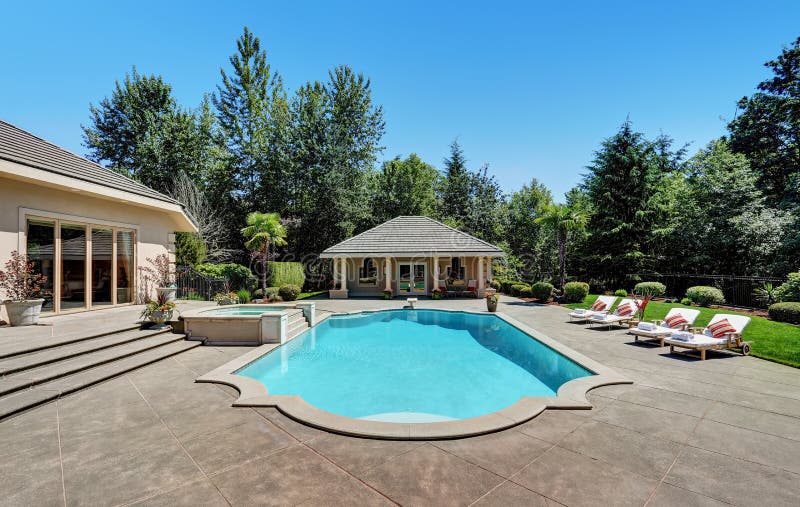
What is Pool Stabilizer? Terrific Tech for Pool Enthusiasts
Share
Are you puzzled about the term 'what is pool stabilizer'? In the world of swimming pools, having a proper understanding of your pool's chemical balance is crucial. A pool stabilizer is one such component that plays a significant role in maintaining that balance. This article aims to delve into the purpose, benefits, and technological advancements associated with pool stabilizers.
For tech professionals and enthusiasts alike, knowing the ins and outs of your pool maintenance is vital. From enhancing water clarity to extending the life of chlorine, pool stabilizers are life-changing components that can transform how you manage your pool.

What is Pool Stabilizer?
A pool stabilizer, also known as cyanuric acid or conditioner, acts as a sunscreen for chlorine in your pool. It prevents the UV rays of the sun from rapidly breaking down chlorine. Without a stabilizer, chlorine can dissipate in a matter of hours, compelling you to add more frequently and causing unnecessary expense and hassle.
How Does Pool Stabilizer Work?
When added to your pool water, pool stabilizer forms a protective bond with the chlorine, allowing it to last longer. This results in less chlorine usage, reducing your overall maintenance costs significantly. In fact, using the right amount of stabilizer can lead to a noticeable decrease in chemical costs over time.

Benefits of Using Pool Stabilizer
There are multiple benefits associated with using pool stabilizers:
- Longer Chlorine Life: By protecting chlorine from UV light, stabilizers can make your chlorine usage more efficient.
- Better Water Clarity: Stabilizers help keep your water clear and sparkling, preventing cloudiness due to rapid chlorine loss.
- Reduced Chemical Usage: A stabilized pool requires less frequent chlorine additions, leading to substantial cost savings.
- Prolonged Pool Equipment Life: Reduced chemical strain means less wear and tear on your pool's filtration and sanitation systems.
How to Apply Pool Stabilizer
Applying pool stabilizer isn't overly complicated; however, certain steps should be followed to ensure efficiency:
- Calculate your pool's volume to determine the required amount of stabilizer.
- Add the stabilizer slowly to the deep end of the pool while circulating the water.
- Allow 24 hours for the stabilizer to dissolve fully.
- Test the water for its stabilizer level, aiming for a measurement between 30-50 ppm (parts per million).

Common Misconceptions about Pool Stabilizers
Many pool owners have misconceptions about pool stabilizers. One common myth is that you never need to add stabilizer once its in the pool. In reality, stabilizers can degrade over time and should be replenished every season.
Anecdotally, some argue that stabilizers can cause chloramines (the chemical that causes that harsh chlorine smell), but when appropriately managed, this should not be an issue.
Modern Technology in Pool Stabilizers
With advancements in technology, automated systems are now available to help manage the pools chemical levels, including stabilizer concentrations. For instance, IoT technologies can monitor your pool and calculate the need for stabilizers, taking the guesswork out of pool care.
FAQs about Pool Stabilizer
1. How often should I add pool stabilizer?
Generally, you should check and potentially add stabilizer at the beginning of each swimming season or as needed based on water tests.
2. What is the recommended stabilizer level?
The ideal level of stabilizer in a pool is typically between 30-50 ppm. Levels above 100 ppm can render chlorine ineffective.
3. Can I use a stabilizer if my pool is saltwater?
Yes, saltwater pools can benefit from stabilizers, especially as chlorine still dissipates from UV rays.
If you want to delve deeper into pool maintenance practices, take a look at how to clear cloudy pool water or check out when to shock your pool. Each element contributes to a more enjoyable swimming experience. Moreover, for insights on resurfacing your pool, visit pool resurfacing costs.
As you can see, understanding what is pool stabilizer is integral to maintaining not just a clear pool but also a cost-effective one. Implementing the right technology alongside proper chemical management will elevate your pool maintenance to a level you've always wished for.
As an Amazon Associate, I earn from qualifying purchases.
